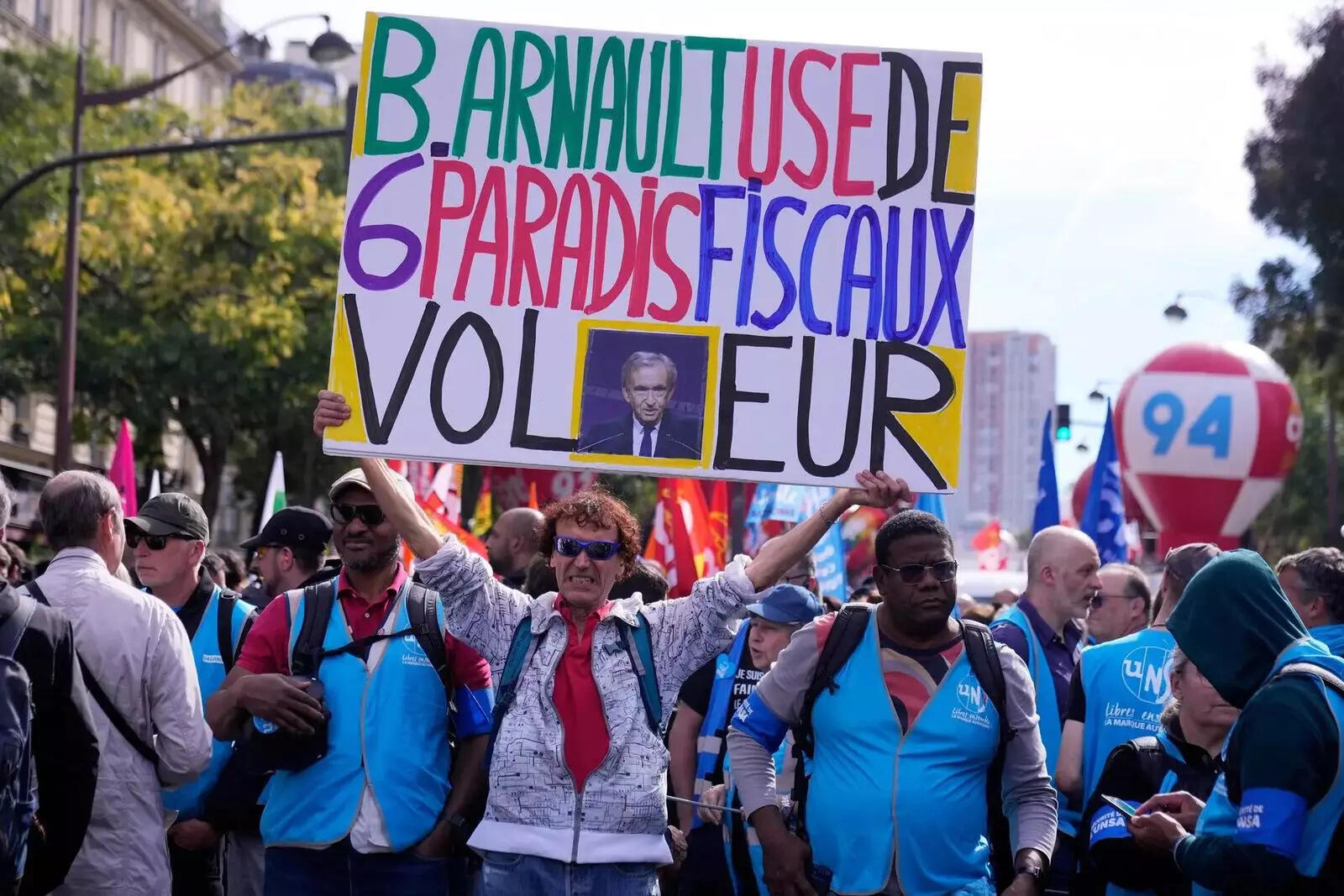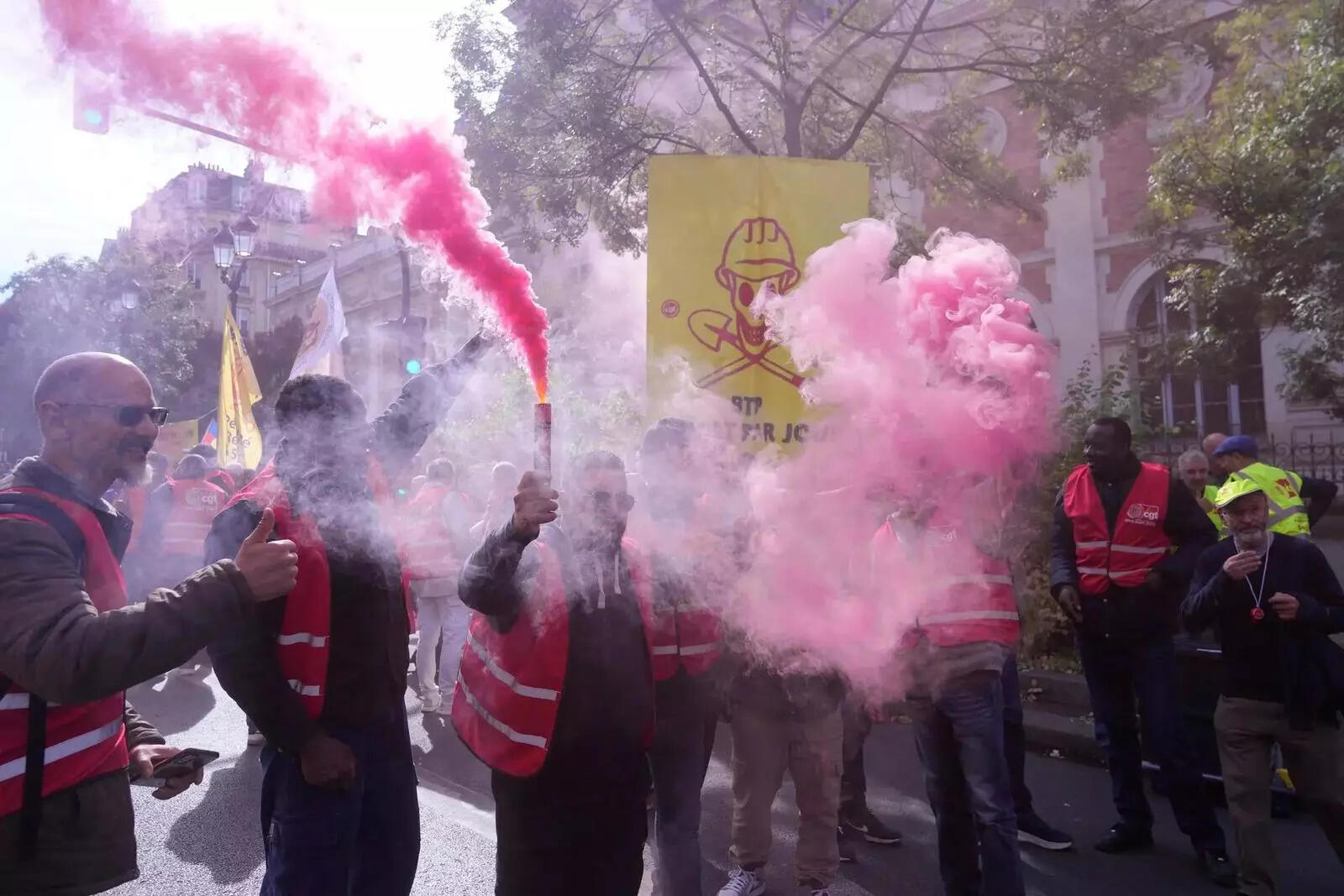The Eiffel Tower in Paris was closed on Thursday as nationwide strikes disrupted daily life across France. Thousands of protesters marched through more than 200 towns and cities, denouncing proposed spending cuts and demanding higher taxes on the wealthy. In Paris, workers, retirees and students rallied from Place d’Italie, with heightened security measures affecting major tourist sites, news agency AFP reported.

A demonstrator displays a poster of luxury group LVMH CEO Bernard Arnault reading” B Arnault uses 6 tax havens , thief” during a new round of strikes and protests against the caretaker government and cost-cutting on Thursday (AP image)
The demonstrations, organised by France’s major unions, are part of an ongoing wave of protests that began last month amid political uncertainty and heated budget discussions. Unions are urging Prime Minister Sébastien Lecornu to abandon draft measures proposed by his predecessor, François Bayrou. These measures include freezes on social welfare and austerity policies, which critics argue would diminish the purchasing power of low- and middle-income workers. The unions have also called for higher taxes on the wealthy.Lecornu, who assumed office last month, has not yet announced his budget plans or appointed government ministers, which is expected in the coming days. Parliament is set to debate the budget bill by the end of the year. Sophie Binet, head of the CGT union, said: “It’s true, it’s the first time that there are three days of strikes and protests in a month without a government or budget. It shows the level of social anger.”Speaking to BFM TV, she explained that the protests are taking place now because decisions are being made and the unions want their voices to be heard.

Unionists use flares during a new round of strikes and protests against the caretaker government (AP image)
According to the French interior ministry, 195,000 people protested nationwide, including 24,000 in Paris. Transport services were affected, with regional trains and commuter services operating at reduced capacity, though high-speed trains ran normally. Teachers and health care workers also joined the strikes, but turnout appeared lower than last month, when over 500,000 demonstrators marched across France.Earlier protests included a day of anti-government action that saw streets filled with smoke, barricades set ablaze and tear gas deployed as part of the “Block Everything” campaign.




